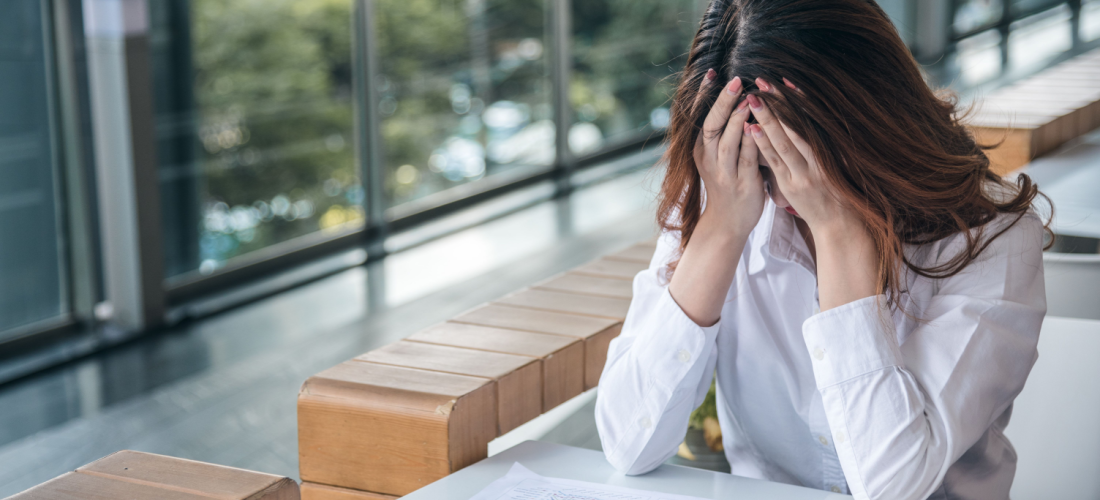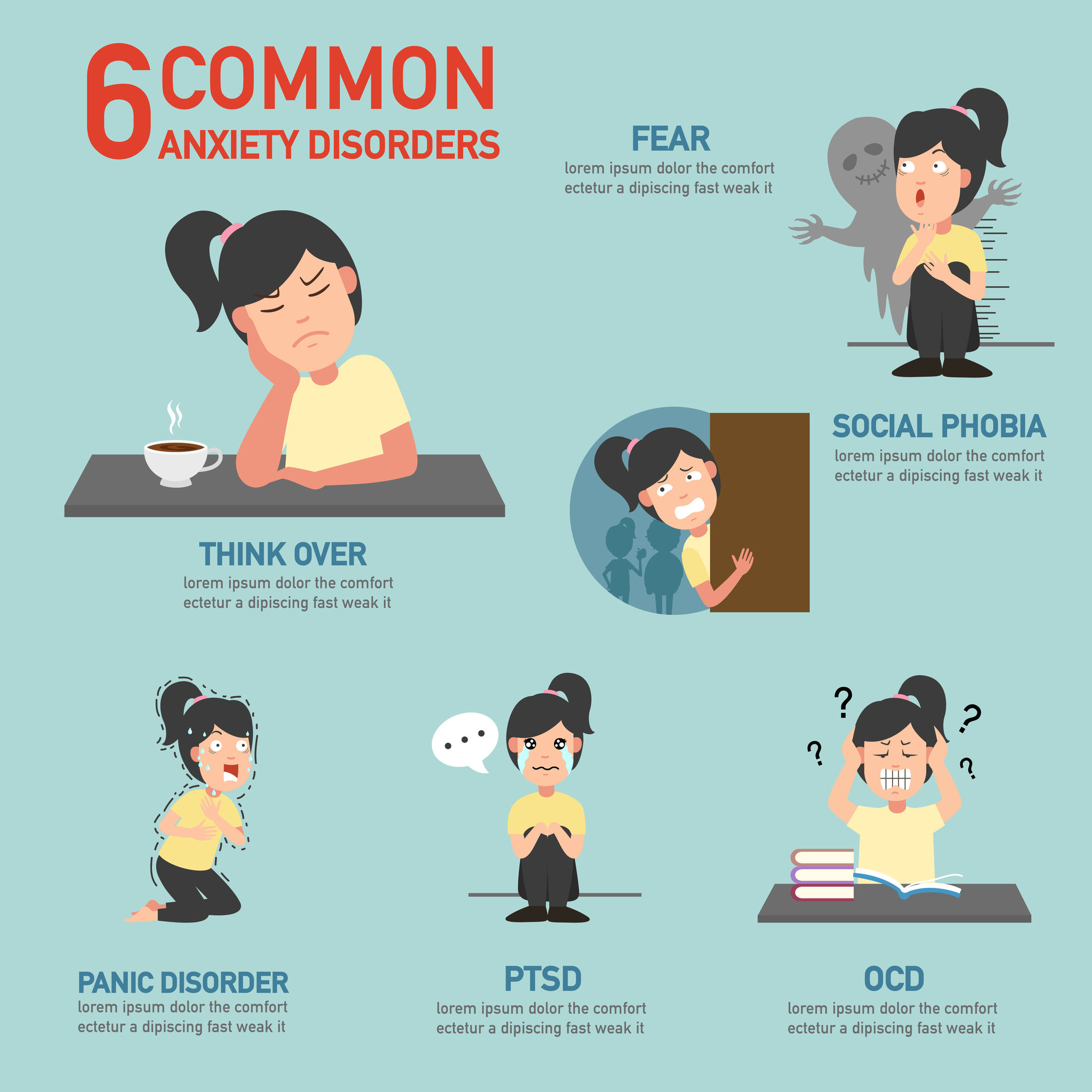One-on-one counselling for anxiety sessions that change lives
One-on-one counselling for anxiety sessions that change lives
Blog Article
Checking Out Various Approaches in Therapy for Stress And Anxiety Problem for Lasting Adjustment
When tackling anxiousness conditions, it's important to discover a range of therapy methods. Each method supplies one-of-a-kind understandings and devices to assist you handle your signs and symptoms successfully. You may discover that combining methods can yield the very best outcomes. Understanding the subtleties of these techniques is vital to fostering long-term adjustment. What happens if the best combination could release a new level of psychological wellness for you?
Recognizing Stress And Anxiety Disorders: A Short Summary
Anxiety problems, which affect numerous people worldwide, can considerably impact day-to-day life. You may experience frustrating sensations of worry or worry that seem irrepressible. These feelings can bring about physical signs like an auto racing heart, sweating, and even wooziness. Typical sorts of anxiousness problems include generalised anxiousness condition, panic condition, and social anxiousness problem. Each has one-of-a-kind indications, yet they all share a tendency to disrupt your regular and relationships.Understanding the origin causes of your stress and anxiety is crucial. It could come from genes, brain chemistry, or life experiences. Identifying your triggers can help you handle your actions much better. It is necessary to bear in mind that you're not the only one in this struggle. Lots of people encounter comparable obstacles, and seeking aid is a strong step toward feeling much better. By discovering anxiety conditions, you're currently on the course to understanding and handling your condition much more efficiently.
Cognitive-Behavioral Treatment: Testing Adverse Idea Patterns
In Cognitive-Behavioral Therapy, you'll start by identifying the unfavorable thought causes that add to your stress and anxiety. Once you acknowledge these thoughts, you'll deal with changing them with even more positive options. With each other, you'll construct effective coping methods to help manage your anxiety in everyday scenarios.
Identifying Negative Thought Triggers

When you experience moments of distress, identifying the particular triggers behind your adverse thoughts can be necessary in taking care of anxiousness. Start by paying interest to situations that provoke feelings of fear or anxiety. Is it a jampacked area, an approaching target date, or a conversation with particular people? Write down these instances in a journal. This will certainly help you identify patterns in your thinking. Notice physical feelings that accompany your unfavorable ideas, like a racing heart or rigidity in your upper body. By identifying these triggers, you get insight right into what's sustaining your stress and anxiety. Comprehending these links is the first action in testing those thoughts and ultimately restoring control over your psychological reactions.
Changing Ideas With Positives
Testing adverse thought patterns is an essential action in changing your frame of mind and minimizing stress and anxiety. You may frequently locate yourself trapped in cycles of insecurity or disastrous reasoning. Instead of allowing these thoughts determine your feelings, practice changing them with realistic options or positive affirmations. When you assume, "I can't manage this," change it to, "I can manage difficulties one action at a time." This easy modification can considerably influence your emotional state. Routinely identifying and countering these unfavorable ideas assists produce a much healthier inner dialogue. Keep in mind, it requires time and effort, but continually practicing this method can cause enduring modification, empowering you to deal with anxiousness with restored confidence and strength.
Structure Coping Approaches With Each Other
Changing negative thoughts is only the start of managing stress and anxiety efficiently. To develop long lasting modification, you need to build coping methods that empower you. Cognitive-Behavioral Therapy (CBT) aids you determine and challenge those unhelpful thought patterns. With each other, you and your therapist can discover how these ideas effect your sensations and behaviors.Start by creating functional techniques, like journaling or mindfulness exercises, that enable you to challenge anxiety head-on. When you encounter your anxieties progressively, you'll find out to respond differently.

Mindfulness and Acceptance-Based Approaches: Growing Present-Moment Understanding
As you browse the complexities of stress and anxiety, incorporating mindfulness and acceptance-based techniques can substantially improve your capability to grow present-moment understanding. By focusing on the present moment, you'll discover that you can observe your thoughts and sensations without judgment (Counseling services for anxiety). This method aids you recognize your stress and anxiety without feeling bewildered by it.Engaging in mindfulness workouts, such as deep breathing, body scans, or assisted reflections, allows you to ground yourself in your present experience. Acceptance-based strategies urge you to embrace your emotions instead of fight against them. They lose their power over you.Incorporating these techniques right into your everyday regimen can change just how you react to anxiousness when you approve your sensations. You'll create resilience and find out to navigate stressful circumstances with greater simplicity. Ultimately, growing present-moment awareness lays the structure for enduring change, equipping you to lead an extra meeting life
Direct Exposure Therapy: Facing Anxieties Slowly
Exposure therapy helps you challenge your worries in a steady means, making it less frustrating. You'll find out methods to deal with anxiety-provoking situations detailed, while also building coping strategies to manage your reactions. This technique encourages you to take control and decrease anxiety gradually.
Steady Exposure Techniques

When facing anxiety, progressively challenging your fears can be an effective way to regain control. This method, called steady exposure, includes gradually subjecting on your own to the circumstances or items that activate your anxiousness. Start with much less challenging situations and gradually work your way as much as even more difficult ones. If you're worried of public talking, you may start by speaking in front of a mirror, try this out after that progress to sharing ideas with a good friend, and eventually resolve a small group. Each step assists desensitize you to the fear, developing your confidence gradually. Bear in mind, it's vital to speed on your own and celebrate tiny success as you move with this process, enhancing your capacity to handle stress and anxiety properly.
Structure Coping Approaches
Structure efficient coping methods is essential for taking care of anxiousness, specifically as you confront your fears slowly - Counseling services for anxiety. One powerful method is exposure therapy, where you start by facing your anxieties in a regulated manner. Start with less frightening situations and gradually work your means approximately even more challenging situations. This progressive exposure aids desensitize you to anxiousness triggers, making them less overwhelming.Incorporate relaxation techniques, such as deep breathing or mindfulness, to calm your mind during exposure. Track your development, commemorating little success along the road to improve your self-confidence. Bear in mind, it's all right to take your time; the objective isn't excellence yet constant enhancement. By developing these strategies, you'll empower yourself to navigate anxiety and embrace life much more totally
Psychodynamic Therapy: Revealing Root Causes of Anxiety
Psychodynamic treatment checks out the unconscious mind, revealing the origin creates of your stress and anxiety. By analyzing your ideas, feelings, and previous experiences, this technique assists you discover underlying problems and unresolved concerns that may contribute to your present anxiety. You'll collaborate with a specialist to investigate childhood years experiences, partnerships, and psychological patterns that form your actions today.As you gain understanding into these deeper layers of your mind, you'll start to recognize just how past events affect your present habits. This understanding can result in catharsis, allowing you to process emotions you could have suppressed.Through the healing connection, you can likewise determine protection devices that may have established with time, using a more clear path to change. Inevitably, psychodynamic therapy outfits you with the devices to resolve your anxiousness at its core, promoting long-term change in your psychological wellness.
All Natural and integrative Techniques: Integrating Strategies for Greater Efficiency
Integrating various therapeutic strategies can enhance your trip toward taking care of stress and anxiety extra effectively. By incorporating components from cognitive-behavioral treatment, mindfulness methods, and all natural strategies, you can produce an individualized technique that addresses your unique needs. You might make use of cognitive-behavioral techniques to challenge adverse thought patterns while integrating mindfulness workouts to ground yourself in the present moment.Additionally, discovering alternative techniques such as yoga exercise or reflection can promote relaxation and reduce anxiety symptoms. This mix enables you to create higher self-awareness and resilience.Experimenting with these varied approaches can assist you find what resonates most with you. Keep in mind, it's about locating a synergy that works, rather than sticking to a solitary method. This integrative strategy not only uses instant relief yet additionally cultivates lasting abilities for taking care of anxiousness, empowering you to recover control over your life.
The Role of Support Equipments: Structure Durability With Link
While it may appear that handling anxiousness is a solitary trip, having a solid support group can play a vital role in your resilience. Surrounding on your own with empathetic buddies, household, or support groups develops a safe space where you can honestly share your experiences and feelings. You advise yourself that you're not alone in this struggle.These connections use motivation and can give functional coping approaches that have worked for others when you link with others. It's likewise a possibility to obtain perspective; close friends can help you see situations differently, minimizing feelings of isolation.Moreover, psychological assistance promotes a sense of belonging, this contact form which can substantially relieve anxiety symptoms. By leaning on your support system, you can develop strength and deal with challenges more effectively. Remember, getting to out for aid signifies stamina, and it can make all the distinction in your trip towards handling stress and anxiety.
Frequently Asked Questions
What Are the Common Signs of Anxiousness Disorders?
You might experience restlessness, exhaustion, trouble concentrating, irritability, muscle stress, and rest disruptions. Physical signs can consist of quick heartbeat, sweating, and trembling. Identifying these signs early can assist you look for ideal support and treatment.
How Much Time Does Therapy Typically Last for Anxiousness Disorders?
Treatment for stress and anxiety disorders typically lasts anywhere from a couple of weeks to numerous months. It truly relies on your private needs, progression, and the methods your therapist makes use of to help you handle your stress and anxiety effectively.
Can Drug Be Utilized Together With Therapy for Anxiousness?
Yes, drug can absolutely be made use of alongside treatment for anxiety. Combining both strategies usually improves treatment performance, helping you take care of signs and symptoms while checking out underlying problems via therapy (Counseling services for anxiety). Always consult your medical care provider for tailored suggestions
Are There Self-Help Methods for Managing Anxiousness?
Yes, there are several self-help approaches for managing anxiety. You can exercise mindfulness, participate in routine exercise, maintain a well balanced diet regimen, develop a routine, and utilize deep breathing strategies to help in reducing stress and anxiety signs effectively.
Just how Do I Know if I Need Professional Assistance for Anxiousness?

Report this page